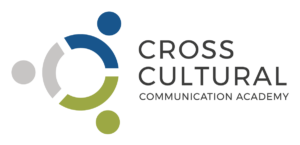Cultural diversity as a business opportunity:
How coaches and trainer profit from profound competences in cultural diversity

Martina Jeric-Ruzovits
CROSS CULTURAL COMMUNICATION ACADEMY
In today’s interconnected business-world, cross-cultural communication and cultural diversity have become essential aspects of various industries, including coaching and training. Coaches and trainers who possess profound competences in navigating diverse cultural contexts not only enhance their personal and professional advantages but also unlock numerous opportunities for their continuous growth and development. In this article, we will explore how coaches and trainers profit from cross-cultural communication skills, the advantages they gain, the professional opportunities that arise, and the key factors necessary for their successful development.
Personal and professional advantages of competences in cultural diversity
Trainers and coaches have many personal and professional advantages when dealing with intercultural communication and diversity. Here are some of them:
- Enhanced Communication Skills: Coaches and trainers with cross-cultural competences possess a heightened ability to communicate effectively across different cultural backgrounds. They develop a deeper understanding of various communication styles, nonverbal cues, and cultural norms, allowing them to adapt their coaching and training approaches accordingly. This adaptability builds trust, establishes rapport, and fosters meaningful connections with clients and trainees from diverse cultural backgrounds.
- Increased Cultural Sensitivity: Profound competences in cross-cultural communication foster greater cultural sensitivity. Coaches and trainers who appreciate and respect cultural differences can create inclusive and safe spaces for individuals to express themselves authentically. By valuing diverse perspectives, they promote inclusivity, foster mutual understanding, and encourage collaboration among their clients and trainees.
- Expanded Global Reach: As the world becomes more interconnected, the ability to work with clients and trainees from different cultural backgrounds becomes increasingly valuable. Coaches and trainers proficient in cross-cultural communication can expand their client base beyond their local communities and tap into global markets. This broader reach not only opens doors to new opportunities but also enriches their professional experiences by engaging with individuals from diverse cultural perspectives.
Professional development opportunities for trainers and coaches
- International collaborations: Coaches and trainers adept in cross-cultural communication can actively seek international collaborations. Partnering with professionals from different countries and cultural backgrounds offers opportunities to exchange knowledge, share best practices, and learn from diverse perspectives. Such collaborations enable them to broaden their horizons, gain fresh insights, and refine their coaching and training methodologies.
- Cultural competence training: The demand for cultural competence training is on the rise across industries. Coaches and trainers with expertise in cross-cultural communication can design and deliver workshops and programs that help organizations and individuals navigate cultural diversity effectively. By leveraging their competences, they can provide valuable guidance on topics such as cultural awareness, intercultural communication, and building inclusive environments.
- Specialization in cross-cultural coaching: Coaches and trainers can choose to specialize in cross-cultural coaching, positioning themselves as experts in supporting individuals who navigate multicultural environments. By tailoring their services to meet the unique needs of clients from diverse backgrounds, they can carve out a niche market for themselves and attract a specific clientele seeking culturally sensitive guidance and support.
Success factors for development cultural diversity
Skills and abilities in the field of diversity and intercultural communication do not come by themselves or overnight. For trainers and coaches it means – we have to be honest – intensive work on themselves.
- Continuous learning and self-reflection: Successful development in cross-cultural communication requires coaches and trainers to engage in continuous learning and self-reflection. They should stay updated on global trends, cultural nuances, and emerging practices. By regularly reflecting on their own biases, assumptions, and communication styles, they can refine their cultural competences and cultivate a growth mindset.
- Cultural immersion and experiential learning: Immersing oneself in different cultural contexts is crucial for developing cross-cultural communication competences. Coaches and trainers can seek opportunities to travel, work, or study abroad, or engage with diverse communities within their own regions. These immersive experiences provide firsthand exposure to various cultural perspectives, enabling them to deepen their understanding and empathy.
- Building a network of diverse relationships: Developing a network of diverse relationships is essential for coaches and trainers aiming to excel in cross-cultural communication. By connecting with professionals, communities, and organizations representing different cultural backgrounds, they can broaden their worldview and establish meaningful connections. Engaging in dialogue and collaboration with individuals from diverse cultures strengthens their cultural competences and expands their professional opportunities.
The ability to navigate cross-cultural communication and cultural diversity provides coaches and trainers with personal and professional advantages, opening doors to new horizons and opportunities. By developing profound competences in this area, coaches and trainers can enhance their communication skills, foster cultural sensitivity, and expand their global reach. They can also unlock professional development opportunities through international collaborations, cultural competence training, and specialization in cross-cultural coaching.
However, success in this development journey requires continuous learning, cultural immersion, self-reflection, and the establishment of diverse relationships. Embracing the power of cross-cultural communication enables coaches and trainers to thrive in today’s interconnected and diverse world, making a lasting impact on individuals and organizations worldwide.
